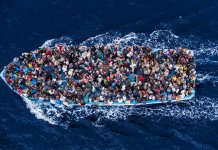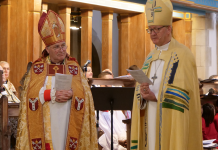THIS month sees the G20 (Group of 20 leading economies) Summit*, hosted by Indonesia. For the first time ever, it includes an official Main Event to discuss how the world’s major religions should be involved, if current pressing global concerns are to be tackled in a meaningful way.
Held in the most populous Muslim-majority nation and founded by the world’s largest Muslim organization, the G20 Religion Forum (R20 for short) in Bali, Indonesia (2-3 Nov) will mobilize global leaders to help ensure that religion functions as a genuine and dynamic source of solutions, rather than problems, in the 21st century. Key objectives are to:
· prevent the weaponization of identity;
· curtail the spread of communal hatred;
· safeguard human beings from violence and suffering precipitated by conflict;
· encourage honest and realistic conversation within and between religious communities; and
· infuse geopolitical and economic power structures with moral and spiritual values
The Nahdlatul Ulama (NU) represents 120 million moderate Muslims, over 40% of Indonesia’s population. The General Chairman of its Central Board, Yahya Staquf, the driving force behind R20, has a record of challenging fellow-believers over the need to re-contextualize the teachings of orthodox, authoritative Islam. NU acknowledges there are problematic tenets of Islamic orthodoxy, and is working to reconcile these with the reality of contemporary civilization, whose context and conditions differ significantly from those in which classical Islamic law emerged.
Such tenets address relations between Muslims and non-Muslims, the structure of governance and the proper aims and conduct of warfare. These are all too often employed by militant extremists to justify their actions, and by those who seek to use Islam for political purposes, fostering a sense of grievance and alienation from the modern world. At the same time, what’s known as Humanitarian Islam seeks to restore rahmah (universal love and compassion) to its rightful place as the primary message of the religion.
Change has already been achieved: in 2019, NU rejected the legal category of infidel (kafir) within Islamic law. It also endorsed the concept of a nation state, ruling that Muslims have no religious obligation to establish a caliphate. Also in 2017, Indonesia’s Supreme Court ruled that all religious groups should be treated equally before the law; failure to do so would be “unconstitutional”. Underpinning the Indonesian Constitution are the five principles, or “Pancasila”, and the nation’s motto “Unity in diversity,” both of which have come under pressure recently in the multi-cultural archipelago. Indonesia’s President Joko Widodo will open the R20.
While acknowledging Indonesia’s own challenges, the NU and the Center for Shared Civilizational Values (R20’s Secretariat) invited the Mecca-based Muslim World League’s Secretary General Shaykh Muhammad bin Abdul Karim al-Issa to co-chair the summit, so as to engage with the wider world of Sunni Islam. In recent years, the Muslim World League has increasingly focused its public outreach on religious moderation.
The NU has developed co-operation with not only the Muslim World League, but also the global Catholic Church and with one of the world’s largest Christian networks, the Protestant World Evangelical Alliance, representing 600 million in 143 countries. Its Secretary General, Prof. Thomas Schirrmacher (Germany), will attend R20 in person. The WEA has co-operated with Nahdlatul Ulama since 2019, including a successful effort to prevent the introduction of sharia law in The Gambia, West Africa.
Africa’s most populous nation will be represented by Archbishop Henry Ndukuba, Primate of the Anglican Church of Nigeria who will address the R20 opening session. With some 25 million adherents, his Church accounts for at least one in four of global active Anglicans. The Catholic Bishop of Sokoto in northern Nigeria, Matthew Kukah, will also speak, as will Bashar Warda, Archbishop of the Chaldean Catholic Church in Erbil, Iraq.
NU leaders represent the most theologically potent and operationally effective actors promoting religious liberty in the Islamic world today, leveraging the unique strength of Indonesia’s indigenous, pluralistic and tolerant understanding and practice of Islam (which dates back to 16th century Java), to promote religious freedom for all.
“I regard the work of Humanitarian Islam and the movement for Shared Civilizational Values as one of the most path-breaking and important developments in world politics and cross-civilizational ethics in our generation. No event that I know of is more timely, urgent, or well-conceived” observes Robert Hefner, a leading scholar of global Islam at Boston University and President of the American Institute for Indonesian Studies. Professor Hefner will also participate in the R20.
The R20 leaders stress that the existing G20 Interfaith Forum emphasizes how religions can help achieve the 2030 Sustainable Development Goals.
India and Brazil will, in succession, hold the G20 Presidency in 2023 and 2024. India has the world’s largest Hindu population (1.1 billion) and Brazil the second largest Christian population (194 million). As such, an ongoing R20 is positioned to provide a seat at the G20 ‘table’ for the 84% of citizens globally who say religion is important or very important to them (Pew Research 2016). Hundreds of millions of these live in the Global South, in nations with no official presence at the G20.










